
Readers,
February is the month that we celebrate the trials and victories of African-Americans in our society. I love this month! I enjoy seeing posters and acknowledgments of those who came before me and allowed me to be who I am today. I have talked a lot about Dr. King in this blog so now I will talk about another Black American that inspired me.
Langston Hughes may not have his own holiday but to me he was an inspiration and an icon. Langston was a poet during the Harlem Renaissance. He used his words to commemorate an interesting time in the history of America. This was before civil rights. This means that he could not sit in the front seat of a bus. He could not sit at a lunch counter either. But he could stand for something great. He expressed his dreams, apprehensions and thoughts about the African-American experience according to him. He used the pen (which is far mightier than the sword) to fight back and speak up. He was one of our great writers. I did not learn about his work until I reached high school. He was not mentioned much in my history books. I love that I can give him acknowledgment here in this forum that might not have existed if he did not inspire me to use my words to make a difference.
Who can you use today to inspire? Is there someone who looks up to you? I often wonder if Langston and others like him knew the impact that they would have on future generations. Let's continue to make history.
-Read something great
 |
| Me and a Gun |
It's not Bob Dylan's best by any means, but for quite a while I've had a fondness for his little-known early folk song,
"Let Me Die in My Footsteps", which I first heard in a recording by
Happy Traum (with Dylan in background) from the
Best of Broadside album, a marvelous collection that I gave to my mother as a Christmas present ten years ago.
When I first heard the song, this verse is one that quickly stuck in my mind, and is one that has a habit of floating through my mind's ear with some regularity:
If I had rubies and riches and crowns
I’d buy the whole world and change things around
I’d throw all the guns and the tanks in the sea
For they are mistakes of a past history
It was a constant earwig this weekend after I learned of the
massacre in Arizona.
I think John Scalzi, among others, has
sensible things to say about the politics of all this -- it's entirely likely that Jared Loughner was, in a vernacular sense at least, "crazy", but the national conversation has turned, for good reason, to the violence implied by much right-wing rhetoric -- and overtly stated by slightly less such rhetoric.
I have lived most of my life in a state where it was recently
declared legal for people to carry guns in the State House. I lived for the first 18 years of my life with a gun shop attached to my house. When my father died in 2007, I inherited that gun shop, and had to get a Federal Firearms License to sell off the inventory. I know the gun culture in this country well, because though it's never held much appeal for me, it is a world I have never fully escaped. Mine has not been a world just of hunting guns, either; I shot my first machine gun when I was about 9 years old, maybe 8. (I've written about all this in some detail in
my Rambo II essay.) I still have many well-armed friends, some of whom, in fact, I sold guns to.
Despite my left-wing tendencies in nearly every other realm, I'm not a big fan of most gun control proposals and legislation, but my reasons for not being a fan would probably cause people more comfortable with our gun culture to label me anti-gun -- most of the legislation seems to me ineffective. Dylan's utopia in "Let Me Die in My Footsteps" is one I fiercely yearn for -- a world of no weaponry.
But that's a utopia, and while utopian thinking has its place, I don't think it should be the base of legislation.
Ours is a nation of hundreds of millions of guns legally owned by civilians. It's just about impossible to know how many illegal guns are out there in addition to the hundreds of millions legally available. That's not a fact you can just legislate away, and broad attempts to do so only play into the fears of gun owners who think the government wants to take their guns -- and playing into those fears just causes more people to h
 The new PaperTigers issue is all about “religious diversity in relation to end-of-the-year celebrations.” For Christians, the end of the year is about celebrating the advent of the birth of Jesus Christ. In Carol of the Brown King: Nativity Poems by Langston Hughes, the story is written about in six poems, beautifully and colorfully illustrated by Ashley Bryan. In the title poem, Hughes brings out both the paradoxically particular and universal appeal in worshipping the Christ child by identifying one of the Wise Men as “dark like me–/Part of His/Nativity.” In “Shepherd’s Song at Christmas” a little shepherd boy contemplates the kinds of gifts he can bring to the “King in the Manger” and settles on this one:
The new PaperTigers issue is all about “religious diversity in relation to end-of-the-year celebrations.” For Christians, the end of the year is about celebrating the advent of the birth of Jesus Christ. In Carol of the Brown King: Nativity Poems by Langston Hughes, the story is written about in six poems, beautifully and colorfully illustrated by Ashley Bryan. In the title poem, Hughes brings out both the paradoxically particular and universal appeal in worshipping the Christ child by identifying one of the Wise Men as “dark like me–/Part of His/Nativity.” In “Shepherd’s Song at Christmas” a little shepherd boy contemplates the kinds of gifts he can bring to the “King in the Manger” and settles on this one:
I will bring my heart
And give my heart to Him.
I will give my heart
To the Manger.
Ashley Bryan’s illustrations are rich and colorful depictions of the nativity. Bryan, who is known for his interest in the illustration of African American spirituals and poetry, has featured African-Americans as Mary and Joseph and the infant Jesus, and as the shepherd boy and one of the Magi in this book. His illustrations contextualize the story in a way that departs from the traditional depictions of these Biblical figures and also creates points of identification for African Americans to this story. By reading and viewing a book like Carol of the Brown King, a child can have a wider, richer view of the Incarnation.
How do you tell the story of Christmas to your children? What books do you like to read to them at this time of year? What events do you like to take them to? Do drop us a line at PaperTigers and share with us some of your holiday reading treasures.
This week’s Poetry Friday host is:
Ok, ok, so I'll admit it. I'm not a huge poetry fan. Well...I'm not even a big poetry fan, let alone huge. Even if I wouldn't necessarily chose to read a book of poetry for fun, I still loooovve books with great poems, and what better poet to write a poem-based picture book than Langston Hughes? Now, Hughes didn't tecnically produce this wonderful book, as he passed away over 40 years ago, but his poem is the center of the entire story, so I'll give him some credit too. :)
 The Negro Speaks of Rivers is based on the poem of the same name, written by Langston Hughes and illustrated by the amazing E.B. Lewis. The poem speaks of the importance of water in this man's life, from time in the Euphrates in Africa, to the Mississippi River Abe Lincoln traveled down on his quest for ending slavery.
The Negro Speaks of Rivers is based on the poem of the same name, written by Langston Hughes and illustrated by the amazing E.B. Lewis. The poem speaks of the importance of water in this man's life, from time in the Euphrates in Africa, to the Mississippi River Abe Lincoln traveled down on his quest for ending slavery.
E.B. Lewis writes in an illustrator's note, the following:
"Water has played a powerful role in the lives of black people. It has been the boon and bane of our existence. We have been born out of water; baptized by water, carried by and even killed by water."
I thought that was a wonderful explanation of the connection he felt to Hughes' poem and why he felt compelled to pair it with his gorgeous illustrations.
The poem is beautiful and the illustrations are just amazing, following the path of the water that played such a huge part in the lives of the ancesters of both the author and illustrator. I was touched by this book, and have since read it over and over again, lingering on each page to see all the illustrations have to offer.
A wonderful selection for all libraries, as well as the Black History Month displays that I'm sure are popping up all over your own libraries. I truly loved this wonderful book.
To learn more or to purchase, click on the book cover above to link to Amazon.
The Negro Speaks of Rivers
Langston Hughes and E.B. Lewis
32pages
Picture Book/Poetry
Hyperion Books for Children
9780786818679
January 2009

By:
Julie Fortenberry,
on 11/5/2008
Blog:
Children's Illustration
(
Login to Add to MyJacketFlap)
JacketFlap tags:
Charlotte Pomerantz,
Seuss,
Julius Lester,
Langston Hughes,
Eve Merriam,
Syd Hoff,
Munro Leaf,
Carl Sandburg,
Walt Kelly,
Norma Klein,
Lucille Clifton,
Add a tag

After a decade of work, Oxford University Press and the W. E. B. Du Bois Institute published the African American National Biography(AANB). The AANB is the largest repository of black life stories ever assembled with more than 4,000 biographies. To celebrate this monumental achievement we have invited the contributors to this 8 volume set to share some of their knowledge with the OUPBlog. Over the next couple of months we will have the honor of sharing their thoughts, reflections and opinions with you.
AANB contributor Anna Christian is the author of Meet It, Greet It, and Defeat It! and Mrs. Griffin is Missing and Other Stories. Her children’s book The Big Table will be published this year.
Two African American literary giants died on the same day, nineteen years apart, Claude McKay, May 22, 1948 and Langston Hughes, on May 22, 1967. Both were poets, writers, and significant figures in the literary movement of the Harlem Renaissance.
Festus Claude McKay was born on September 15, 1889 in Sunny Ville, Clarendon Parish, Jamaica, West Indies. The youngest of eleven children, McKay began writing poetry at the age of ten. Before coming to the U.S. he published two volumes of dialect verse, Songs of Jamaica (1912) and Constab Ballads (1912). Shortly thereafter, he immigrated to the U.S. and enrolled in Tuskegee, Institute in Alabama. After a few months, he left to attend Kansas State University with the intention of studying agronomy. However, after experiencing the harsh realities of racism, he moved to New York and married his childhood sweetheart, Eulalie Imelda Lewis. The marriage lasted a year. She returned to Jamaica to give birth to their daughter. It was his encounter with American racism that informed much of his subsequent work.
He was a novelist, poet, short story writer, and journalist. He wrote three novels, Home to Harlem, 1928, winner of the Harmon Gold Award for Literature. It became the first novel by a Harlem writer to reach the best seller list. It was controversial because of its depiction of “the underside of Harlem life.” His second novel, Banjo was written in 1929. Banana Bottom was written in 1933. He wrote two autobiographies, A Long Way from Home, 1937, and My Green Hills of Jamaica, published posthumously in 1979. His nonfiction book, Harlem’s Negro Metropolis, 1940, did not gain much attention at the time; however, today it remains significant as an historical source. His collection of poems in Harlem Shadows, (1922), is thought to be the precursor of the Harlem Renaissance. One of his poems, a sonnet, “If We Must Die,” (1919) written during the Red Summer was a response to the racial violence against African Americans.
His concern for social and political affairs led him to write for the Liberator, a socialist magazine of art and literature, founded by Crystal and Max Eastman. He became the associate editor of the Liberator and traveled to Moscow with Max Eastman.
From 1919 to 1921, he lived in England and wrote articles for Sylvia Pankhurst’s Trade Union Journal the Workers’ Drednought. He returned to the U.S. briefly and in 1923, he began a sojourn throughout Europe, the Soviet Union, and Africa that lasted twelve years.
He was drawn to communism and supported the Bolshevist revolution; however, he soon lost faith and returned to the United States in 1934. For a brief time, he worked for the Federal Writers’ Project. Unable to make a living from writing, McKay worked in a shipbuilding yard and as a porter on the railroad. In 1943 he suffered a stroke brought on by high blood pressure and heart disease. On May 22, 1948, he died of congestive heart failure at age 59.
He greatly influenced Senegalese poet Leopold Sedar Senghor, Martinique poet Amiee Cesaire and other pioneers of the Negritude Literary Movement. Langston Hughes and other young poets of the Harlem Renaissance cite Claude McKay as a leading inspirational force for the candor in his poems and essays that focused on racial issues and the working class.
James Langston Hughes, writer, poet, playwright, novelist, was born Feb. 1, 1902 in Joplin, Missouri. His mother sent him to live with his grandmother in Lawrence, Kansas where he lived until her death. He was twelve when he returned to live with his mother and stepfather in Lincoln, Illinois. The family then moved to Cleveland where Hughes completed his high school education. While in high school, he began to develop his literary talent writing for the Central High monthly magazine and publishing his first poem. During the summer of his junior year, he visited his father, James Hughes, in Toluca, Mexico. Upon completion of high school, he returned to live with his father in Mexico. A strain developed between the two men. Father wanted his son to study engineering, but Hughes wanted to be a writer
In 1921, Hughes attended Columbia University in New York. One of his early poems, “The Negro Speaks of Rivers,” was published in 1921 in Crisis Magazine, edited by W.EB. DuBois. His poem “The Weary Blues” which won first prize in a contest and was published in 1926 in Opportunity Magazine launched his literary career.
Hughes traveled abroad extensively. He worked on a freighter down the west coast of Africa. In 1924 he lived several months in Paris, France, and from 1932-1933 along with a group of African American artists, he visited the Soviet Union.
A prolific writer, Hughes wrote two autobiographies, The Big Sea (1940), and I Wonder as I Wander (1956), several volumes of poetry, novels, plays, essays and a dozen children’s books. His work celebrated black life and culture infusing them with a strong sense of racial pride. His first novel, Not Without Laughter, (1930) won the Harmon Gold Medal for Literature.
In 1942 and continuing for twenty years, he wrote a column for the Chicago Defender newspaper featuring the character Jesse B. Simple. Simple, representing the common black man in Harlem, commented on matters mainly about race and racism culminating in a collection of essays entitled, “Simple Speaks His Mind.”
He experimented with free verse and infused his poems with the rhythms of jazz and blues. In his noteworthy essay “The Negro Artist and the Racial Mountain” Hughes affirms the role of the Negro artist. “We younger Negro artists who create now intend to express our individual dark-skinned selves without fear or shame. If white people are please, we are glad. If not, it doesn’t matter. We know we are beautiful and ugly, too.”
On May 22, 1967, Hughes died at age 65 from complications after abdominal surgery.
ShareThis
I think I’m going to have my students sign-up to use this for one week at a time since there are seven activities. Though it’ll take two weeks to complete all of the activities in a meaningful way since they’re pretty elaborate. Here are the titles of the activities I put inside of [...]
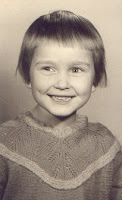 This is the week—some 42 years ago—that I became an American citizen. I was remembering the day fondly, and decided to make a poetry connection. I was 10 years old and my German-born parents were becoming naturalized citizens, so I was, too. I remember getting out of school, going to the Dallas courthouse, the seriousness and the celebration, and the chocolate milk shake that followed. What a day! A few years later, as a teenager, I helped my Oma (grandmother) master enough American history in broken English to pass the questions that were asked of her as she became an American citizen, too. This is the little old lady who stood up to Hitler and was a German refugee fleeing with five children and an elderly mother in tow. I am still touched when I see swearing in ceremonies and look at all the different faces that are proud to call the United States home. I know it may seem corny, but this is very real in my family.
This is the week—some 42 years ago—that I became an American citizen. I was remembering the day fondly, and decided to make a poetry connection. I was 10 years old and my German-born parents were becoming naturalized citizens, so I was, too. I remember getting out of school, going to the Dallas courthouse, the seriousness and the celebration, and the chocolate milk shake that followed. What a day! A few years later, as a teenager, I helped my Oma (grandmother) master enough American history in broken English to pass the questions that were asked of her as she became an American citizen, too. This is the little old lady who stood up to Hitler and was a German refugee fleeing with five children and an elderly mother in tow. I am still touched when I see swearing in ceremonies and look at all the different faces that are proud to call the United States home. I know it may seem corny, but this is very real in my family.
And there are many poets who have written about their feelings about this country, both good and bad. Maybe that’s why I love Langston Hughes and his “I, too am America” poem—although I recognize a very different struggle there. Or why I relate to Janet Wong’s poem, “Speak up” about kids taunting a child who speaks another language. Many Latino/Latina poets have addressed this issue of immigration, language difference, and cultural assimilation in their work, including Pat Mora, Gary Soto, Juan Felipe Herrera, and Francisco X. Alarcón. One poetry collection that really speaks to me on this issue is Monica Gunning’s America, My New Home (San Francisco, CA: Children’s Book Press, 2004). Although Gunning is my mother’s age, and comes from Jamaica not Germany, her poems speak with wonder about the contrasts between her old home and new home, and about the challenges in straddling old ways and new, in ways that echo my own experiences and emotions. Across cultures, there are still children for whom “home” is a very real question, whose families talk seriously about loyalty and identity, and who walk the tightrope of keeping family traditions while being “real” Americans.
I looked for the perfect poem to share and decided to try an experiment. My 19 year old son has been educating me about “mashups,” a new trend in music to blend parts of many different songs into one. It’s led to interesting discussions between us about artistic freedom and copyright infringement, but it has also prompted me to think about what that might look and feel like in other arts—like poetry. So, with all due respect to two fantastic poets, Langston Hughes and Walt Whitman, here is a “mashup” of two of their poems meshed into one: “I, Too” and “I Hear America Singing.”
I, too, sing America.
I hear America singing, the varied carols I hear;
I am the darker brother.
They send me to eat in the kitchen
When company comes,
But I laugh,
And eat well,
And grow strong.
Tomorrow,
I'll be at the table
When company comes.
Nobody'll dare
Say to me,
"Eat in the kitchen,"
Then.
Besides,
They'll see how beautiful I am
And be ashamed—
I, too, sing America.
I hear America singing, the varied carols I hear;
Those of mechanics—each one singing his, as it should be, blithe and strong;
The carpenter singing his, as he measures his plank or beam,
The mason singing his, as he makes ready for work, or leaves off work;
The boatman singing what belongs to him in his boat—the deckhand singing on the steamboat deck;
The shoemaker singing as he sits on his bench—the hatter singing as he stands;
The wood-cutter’s song—the ploughboy’s, on his way in the morning, or at the noon intermission, or at sundown;
The delicious singing of the mother—or of the young wife at work—or of the girl sewing or washing—Each singing what belongs to her, and to none else;
The day what belongs to the day—At night, the party of young fellows, robust, friendly,
Singing, with open mouths, their strong melodious songs.
I, too, am America.
Thank you, Langston and Walt. Langston’s words are in brown and Walt’s are in green. FYI. What do you think? Is this poetry sacrilege? Or new and innovative? I’m not sure…
Join the rest of the Poetry Friday Round Up at The Simple and The Ordinary.
Picture credit: Me at 5, attending kindergarten in Germany
 Today is Langston Hughes birthday, Feb. 1, 1902. Boy, I love this man’s poetry. It speaks to me on so many levels and resonates with readers and listeners of all ages and cultures. His collection, The Dream Keeper and Other Poems, is a staple of my poetry library and I refer to it often. (I chose it as one of “Fifteen Classics of Contemporary Poetry for Children” in my Book Links article in 2006; 15, (6), 12-15.) In fact, it was just reissued in a 75th anniversary edition (as I noted Dec. 31, 2007, in My favorite poetry books of 2007.) As I pored over previous blog postings to be sure I didn’t repeat myself, I realized that I refer to Hughes and his work often!
Today is Langston Hughes birthday, Feb. 1, 1902. Boy, I love this man’s poetry. It speaks to me on so many levels and resonates with readers and listeners of all ages and cultures. His collection, The Dream Keeper and Other Poems, is a staple of my poetry library and I refer to it often. (I chose it as one of “Fifteen Classics of Contemporary Poetry for Children” in my Book Links article in 2006; 15, (6), 12-15.) In fact, it was just reissued in a 75th anniversary edition (as I noted Dec. 31, 2007, in My favorite poetry books of 2007.) As I pored over previous blog postings to be sure I didn’t repeat myself, I realized that I refer to Hughes and his work often!
I wrote about his moving “Poem” (I loved my friend./He went away from me) last Sept. 21, 2007, and mentioned his work in my July 24, 2006 posting on “Multicultural Poetry” and my April 14, 2007 posting on Dream Day and my April 17, 2007 posting on the tragedy at Virginia Tech. Last year (Jan. 24), we celebrated Coretta Scott King Illustrator honors for Poetry for Young People: Langston Hughes edited by David Roessel and Arnold Rampersad, illustrated by Benny Andrews (published by Sterling Publishing) and also highlighted Carol of the Brown King: Nativity Poems illustrated by Ashley Bryan (Dec. 22, 2006).
So, for a change, I’d like to pay tribute to Hughes’s life and work with a poem by someone else—Walter Dean Myers, a man who clearly stands on Langston Hughes’s shoulders. This poem is in the voice of a Harlem salesman and comes from Myers’s amazing multi-voiced photo-illustrated, Here in Harlem: Poems in Many Voices (Holiday House, 2004).
Jesse Craig, 38
Salesman
by Walter Dean Myers
I knew Langston
Laughed with the man
In West Harlem
With me thinking
This is no Keats
No fair Shelley
This is Negro
Quintessential
Rice and collards
Down-home brother
He knew rivers
And rent-due blues
And what it meant
To poet Black
The Academy of American Poets is rich with additional information about Hughes and his work, including teaching resources and sample poems. There’s a wonderful audio clip from “The Voice of Langston Hughes” (by Folkways Records) of his reading of his poem, “The Negro Speaks of Rivers,” written in 1920, just after he graduated from high school! Additional audio (and more) can be found at the Langston Hughes Young Writers Project, including poems with musical accompaniment or translated into Spanish!
Thanks to Karen Edmisten for this week's Poetry Friday Round Up.
P.S. New: I’m honored to be linked to the Web site of Book Links as one of their new “Featured Blogs.”
Picture credit: concise.britannica.com
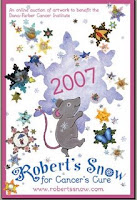 I had the opportunity to meet the talented and effervescent author and illustrator Grace Lin this spring when we were on a panel together at the Texas Library Association conference. Her husband, Robert Mercer, was desperately ill and sadly passed away a month ago at the too-young age of 35. My good friend Nancy also lost her husband to cancer this summer. Grief has been weighing on many I care about recently, so I sought a poem for solace, of course.
I had the opportunity to meet the talented and effervescent author and illustrator Grace Lin this spring when we were on a panel together at the Texas Library Association conference. Her husband, Robert Mercer, was desperately ill and sadly passed away a month ago at the too-young age of 35. My good friend Nancy also lost her husband to cancer this summer. Grief has been weighing on many I care about recently, so I sought a poem for solace, of course.
Poem
by Langston Hughes
I loved my friend.
He went away from me.
There’s nothing more to say.
The poem ends,
Soft as it began—
I loved my friend.
Hughes, Langston. 1994. The Dreamkeeper and Other Poems. New York: Knopf, p. 12.
I would also like to join in the promotion of Robert’s Snow: For Cancer’s Cure, the fundraising effort that Grace initiated several years ago. From the Web site: “Own a piece of art from your favorite children's book illustrator while helping to fight cancer” by buying an original snowflake ornament created by children’s book illustrators. “Since 2004, this online auction has raised over $200,000 for Dana-Farber, and with your help, we can continue this holiday tradition in 2007.” The auction begins in November. And for more information about Robert himself, check out the Blue Rose Girls blog.
For the whole Poetry Friday roundup, go to Sara Lewis Holmes' blog Read Write Believe.
Picture credit: http://bluerosegirls.blogspot.com/
Today I had the rare opportunity to watch TV in the morning. I was unpacking boxes in my new classroom for next year. In the middle of the mess, I watched the Today Show, which I haven't done since last summer. I am usually on my way to work when it begins.
There were lots of children's books in the news today:
1) The Nancy Drew movie is in theaters everywhere today.
2) Al Roker met with his book club to talk to them about Rick Riordan's The Lightning Thief. You can read a transcript of the questions the book club members asked Riordan in this interview here. You can view the video of the book club segment here.
3) Al Roker released his third choice for the book club. It's Swordbird by Nancy Yi Fan, teen author.
Wow! I never thought just having the Today show on as "background noise" would prove to be a fruitful education.
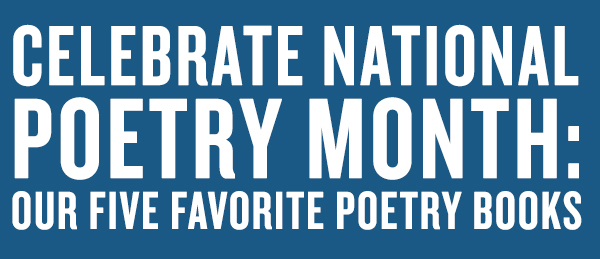
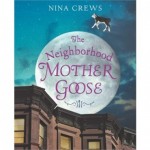
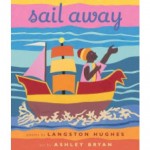
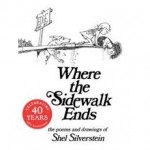 Where the Sidewalk Ends: Poems and Drawings Written and illustrated by Shel Silverstein
Where the Sidewalk Ends: Poems and Drawings Written and illustrated by Shel Silverstein National Geographic Book of Animal Poetry: 200 Poems with Photographs That Squeak, Soar, and Roar! Edited by J. Patrick Lewis
National Geographic Book of Animal Poetry: 200 Poems with Photographs That Squeak, Soar, and Roar! Edited by J. Patrick Lewis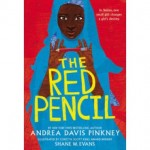 The Red Pencil Written by Andrea Davis Pinkney, with illustrations by Shane W. Evans
The Red Pencil Written by Andrea Davis Pinkney, with illustrations by Shane W. Evans



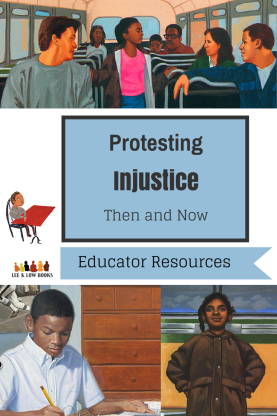
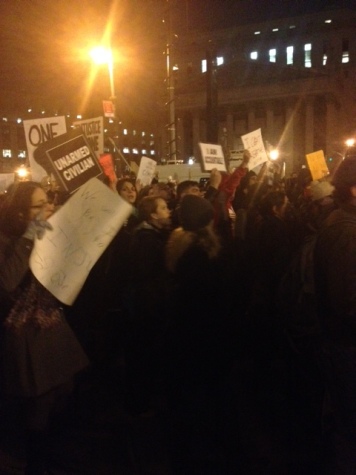
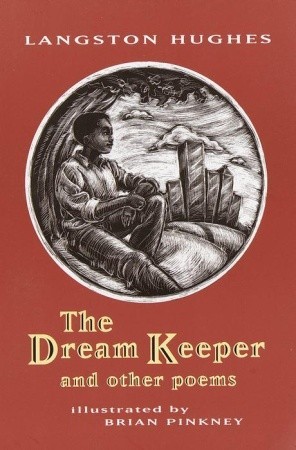









Great post! and I love the resources at the end! Thanks for continuing the conversation with learning.